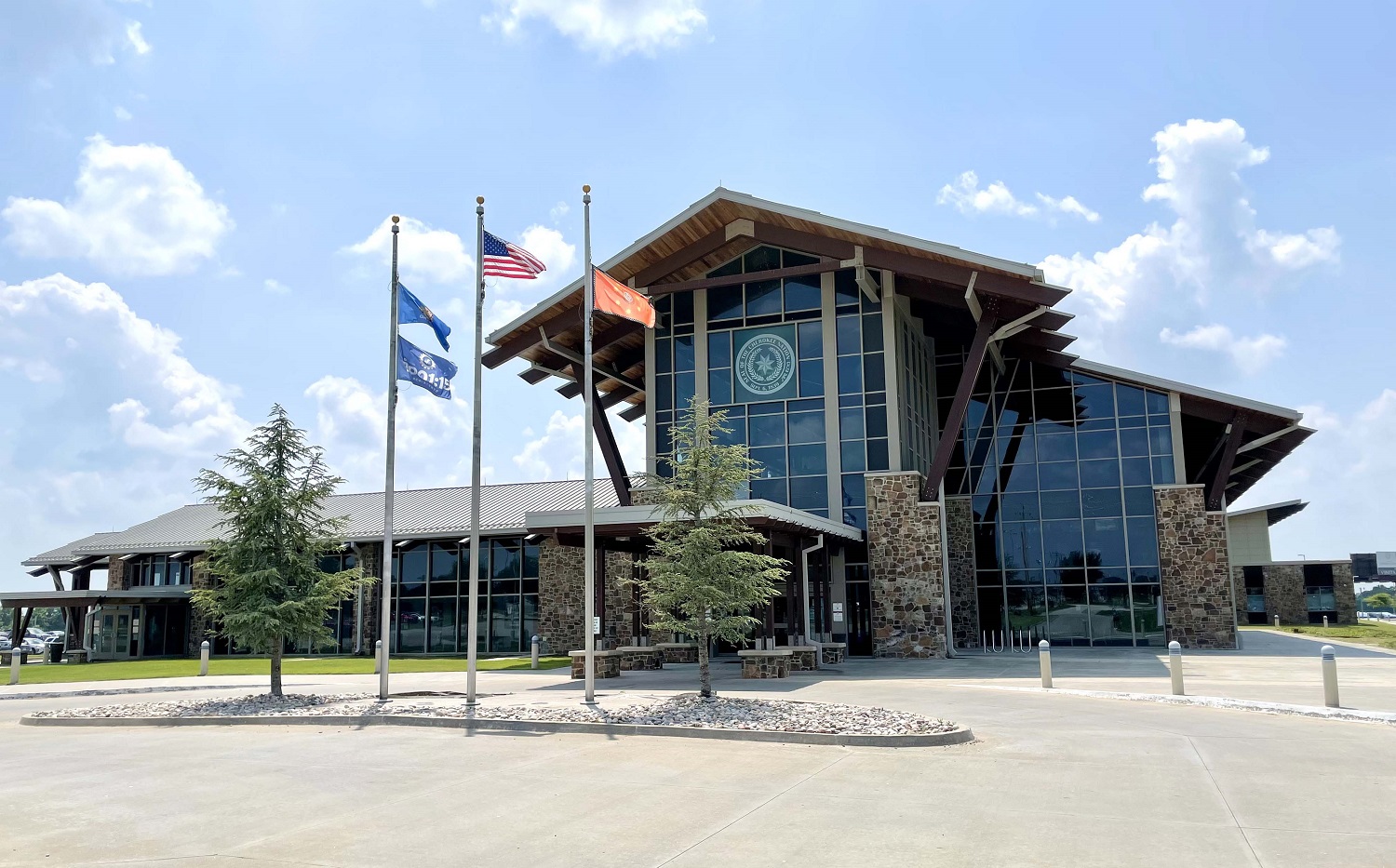
- Details
- By Chuck Hoskin Jr
Guest Opnion. In an age where cooperation is essential to address the many challenges facing our people, I am excited about a new agreement between the Cherokee Nation and the U.S. Department of Veterans Affairs to open a VA clinic within Cherokee Nation’s Vinita Health Center. This historic partnership advances our commitment to ensure that all veterans, both Native and non-Native, can receive quality health care.
The new clinic — 1,300 square feet of leased space including waiting areas, exam rooms, lab and X-ray facilities, and more — is set to officially open in early 2024 and will provide comprehensive services for about 50,000 medical visits per year. Five staffers from the Eastern Oklahoma VA Health Care System will be housed in the Vinita Health Center. This partnership is a unique opportunity to bring tribal and federal health care systems together, and it will give veterans living in rural areas of northeast Oklahoma much easier access to care.
We believe that access to the best care possible is a right, not a privilege, and we especially want to make this a reality for the men and women who have bravely served our country. We must ensure that health care is not only accessible but that it is tailored to meet the unique needs of our veterans.

Cherokees and other Native Americans serve in the U.S. military at a higher rate than any other group, and veterans hold a special place in our hearts. They embody sacrifice, bravery and dedication to liberty and freedom. As Principal Chief of the Cherokee Nation, I am honored to do my part in covering veterans’ long-term health needs.
This tribal/federal collaboration also owes its success to the determination of leaders like Executive Director of the Eastern Oklahoma Health Care System Dr. Kimberly Denning, Deputy Chief Bryan Warner, Deputy Speaker of the Council of the Cherokee Nation Victoria Vazquez, Cherokee Nation Secretary of Veterans Affairs S. Joe Crittenden and my father, former Vinita Mayor Chuck Hoskin.
As we look ahead, this partnership with the VA can be a model for other tribes and communities across the nation. There are even more possibilities within our 7,000-square-mile reservation. When a shared vision and mission meet, we can bridge the challenging gaps we see in health care coverage.
This victory for the region’s veterans is particularly special to me because of who made it possible: my father. Chuck Hoskin concluded 28 consecutive years in elected office early this year, his most recent office Mayor of Vinita. When he learned that the VA was closing its Vinita operations in 2021, he took action.
Chuck Hoskin leveraged his decades of local, tribal and state government service, and his passion as a Navy veteran, to bring Cherokee Nation and the VA together to keep a VA health services presence in Vinita. His quiet and thoughtful approach to solving this problem for the sake of others typifies how he conducted himself as a member of the Cherokee Council (1995-2007), as a State Representative (2006-2012), as Cherokee Nation Chief of Staff (2011-2019) and as Mayor of Vinita (2019-2023). He will not say it, but I will: My father, more than any other individual, saved VA services in Vinita. This victory is only one of the reasons he is the finest public servant I have ever known. We need more like him at all levels of government.
We plan to celebrate this new endeavor on Nov. 2 in Vinita. It won’t just be a celebration of an agreement, but rather of the values we share: honoring our veterans and providing them the quality of care they rightly earned.
Without doubt, this partnership reflects the Cherokee Nation's belief in unity, collaboration, and service to all those who have served us. It reinforces the Cherokee Nation's unwavering commitment to our veterans and sends a message that, together, we can achieve something positive for the betterment of our veterans and our country.
Chuck Hoskin, Jr. is the principal chief of the Navajo Nation.
More Stories Like This
Tribal Economic Development Programs in the Federal Contracting Environment: What They Are, and What They Are NotWhy Redefining Public Health Degrees Would Harm Native and Rural Communities
The SAVE America Act Threatens Native Voting Rights — We Must Fight Back
The Presidential Election of 1789
Cherokee Nation: Telling the Full Story During Black History Month
Help us defend tribal sovereignty.
At Native News Online, our mission is rooted in telling the stories that strengthen sovereignty and uplift Indigenous voices — not just at year’s end, but every single day.
Because of your generosity last year, we were able to keep our reporters on the ground in tribal communities, at national gatherings and in the halls of Congress — covering the issues that matter most to Indian Country: sovereignty, culture, education, health and economic opportunity.
That support sustained us through a tough year in 2025. Now, as we look to the year ahead, we need your help right now to ensure warrior journalism remains strong — reporting that defends tribal sovereignty, amplifies Native truth, and holds power accountable.
 The stakes couldn't be higher. Your support keeps Native voices heard, Native stories told and Native sovereignty defended.
The stakes couldn't be higher. Your support keeps Native voices heard, Native stories told and Native sovereignty defended.
Stand with Warrior Journalism today.
Levi Rickert (Potawatomi), Editor & Publisher

